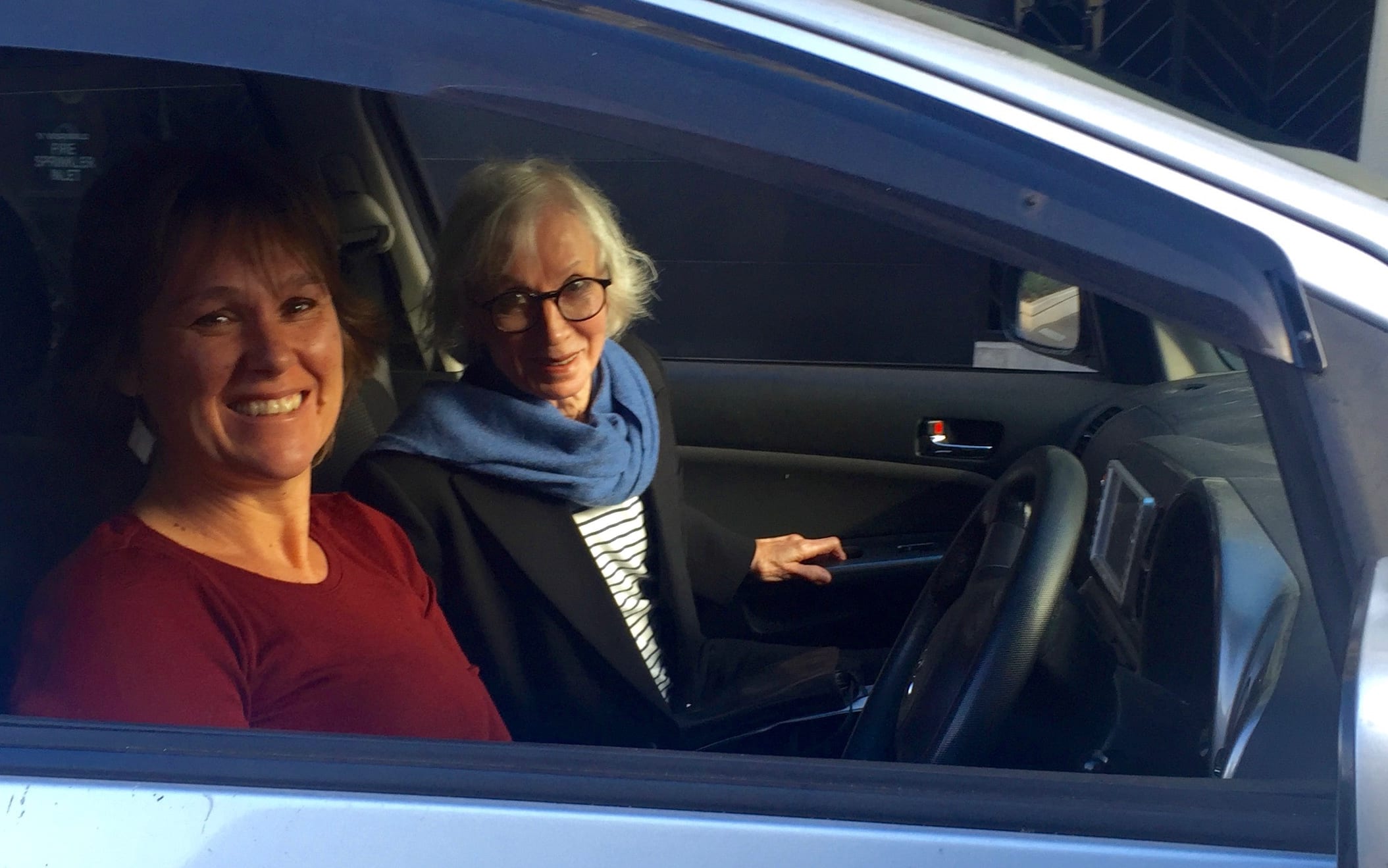We don't talk very much about caring for someone who has neurological decline as they get older.
Ann Andrews, who was diagnosed with Parkinson's Disease when she was 58, wrote two books on Parkinson's Disease and her third book tells the truth about what it's like to care for someone who has Parkinson's and other degenerative diseases.
Sadly, Ann passed away in 2017.
Auckland journalist Jennifer Dann has finished that third book - it's called Living and Caring and talks to 20 couples living with the disease.

Photo: Jennifer Dann
Having heard of Andrews through family, Dann decided to interview her for the 12 Question's column in the Herald.
“Even before she got Parkinson’s she was a well-known theatre producer, TV documentary maker, she was a teacher for the deaf, a crisis counsellor, a feminist, an amazing woman.”
A few months after the interview, Andrews called Dann from her hospital bed and asked if she would co-author her new book.
“I thought ‘she must be mad, she’s just been diagnosed with breast cancer, what the hell’ but I thought yeah that’s something we can do together, I’ve got the time, she finds that working on projects helps her to get through things so by doing stuff together we can get through – and that’s what we did.”
Every week they would jump in Dann's car and head off to interview people for the book. Andrews would be in one room interviewing a person with Parkinson’s and Dann would be in another, interviewing the person who cared for them, usually their partner or child.
“We wanted to find out not just the practical aspects of caring, but also what it feels like and what the emotional effect is.”
Parkinson’s is a very slow, degenerative disease, says Dann, and for many years it may not affect someone. Care is often 10 years down the track.
Marylin was one of the carers Dann interviewed.
“Because it’s a long, long process, it’s almost the dripping water. You continually adjust from the minute that you know, and often you know but it’s not diagnosed. Life is a continual adjustment for a very long period of time. The important thing is you both make decisions when you’re both able to have the conversation and I think sometimes we don’t make those decisions early on.”
The conversation doesn’t have to be a negative one.
“Parkinson’s is a very different disease for every person, it has so many different presentations and different complications so there isn’t one size fits all,” she says.
Driving is one of the biggest challenges.
Parkinson’s effects your motor functions and your cognitive functions, says Dann.
“You’ve got a tremor, you make involuntary movements, you’re stiffer, you can’t turn your neck, you’re slower to make decisions, you lose spatial awareness, you can become a liability on the road.”
Marylin says it was a conversation she and her partner Jeff were starting to get ready to have.
“Jeff always did the driving, long term driving, but one day he just stopped driving the grandchildren, he would walk up to meet them from school and walk them back in the pouring rain. I said to him one day ‘why didn’t you drive up’ and he said he didn’t feel comfortable driving with the children in the car. So, his innate goodness and protectiveness was still there, he wouldn’t put the children at risk by driving.”
Many of the men who were interviewed for the book weren’t as quick to give up driving. Dann says there were men whose families had to stage interventions or hide the car keys and men who would steal the keys to go for a joyride.
“It’s a huge giving up of independence,” says Marilyn.
Another big issue faced by many partners is sharing a bed.
“I didn’t realise Parkinson’s affects sleep,” says Dann.
“They’re waking several times a night to go to the loo, it takes ages because they struggle to get in and out of bed, there can be incontinence issues, there’s involuntary spasms, the medication can cause hallucinations which causes them to lash out in their sleep.”
And by the time morning comes, carers are exhausted, wearing them down over time, says Dann.
Marylin was working fulltime while caring for Jeff and sleeping 2-4 hours a night.
“That whole thing of being a wife, carer, partner, 24 hours a day, is challenge, carers themselves need to be cared for to be able to care,” says Marilyn.
She also says getting a bed that can move individually for both people is worth the money.
As someone who has been through this journey herself, her advice is not to judge others - everyone is different, their relationships are different, and everyone’s abilities are different, she says.
“Humour gets you through everything.”

